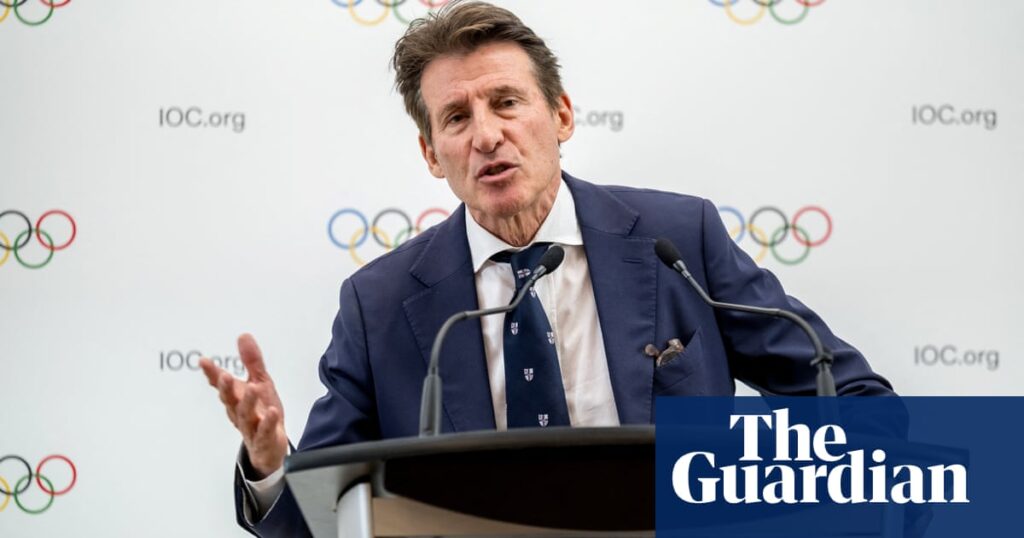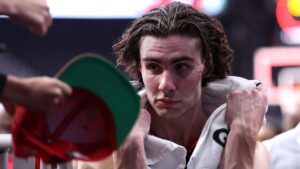
US President Donald Trump’s recent executive order to exclude transgender athletes from women’s sports has found an ally in Sebastian Coe, a candidate for the International Olympic Committee (IOC) presidency. Coe, speaking on the Piers Morgan Uncensored YouTube channel, expressed his agreement with Trump’s principle, though he distanced himself from the broader political implications.
Earlier this month, Trump signed an executive order aimed at banning transgender athletes from participating in women’s sports. This directive empowers the Secretary of State to pressure the IOC to review its inclusion policies, particularly as the Los Angeles Olympic and Paralympic Games in 2028 approach. The order also mandates a review of policies concerning the admission of transgender individuals into the United States for sports participation.
Coe’s Perspective on Women’s Sports Integrity
While Coe supports the principle behind Trump’s order, he clarified that his focus remains on the integrity of women’s sports. “I welcome the commitment to maintaining the integrity of women’s sport,” Coe stated. “For me, this is absolutely about the integrity of competition.” He emphasized the importance of biological distinctions in sports, expressing surprise at the contentious nature of the debate.
World Athletics, the governing body Coe currently leads, is set to introduce stricter rules regarding eligibility for female sports. These rules will include a cheek swab test to verify if an athlete is biologically female, treating transgender athletes and those with differences of sexual development (DSD) under the same policy. Research cited by World Athletics indicates a performance gap between sexes even before puberty.
“When it comes to the female category in elite sport, it has to be sacrosanct,” Coe remarked. “The reason, I think, it is so important is that you cannot have young girls coming into the sport and sensing or feeling that at any stage there is a glass ceiling to their ability to perform at the highest level.”
Broader Implications and Future Considerations
The announcement comes as the IOC prepares for its presidential election in Greece on March 20. The inclusion of transgender athletes is just one of the many complex issues the new president will face. Another significant challenge is the IOC’s stance on Russia, following its exclusion from the Paris Olympic Games after the 2022 invasion of Ukraine. Individual Russian athletes, however, were allowed to compete as neutrals if they met eligibility criteria.
In his interview with Piers Morgan, Coe was asked about potential dialogues with Russian President Vladimir Putin. “You have to talk to everybody … of course you would,” Coe replied, indicating a pragmatic approach to international relations within the sports community.
Expert Opinions and Historical Context
The debate surrounding transgender athletes in sports is not new. It echoes past controversies over gender verification in athletics, dating back to the 1960s. The introduction of scientific methods to verify gender was intended to ensure fair competition, yet it has often sparked ethical and human rights discussions.
Experts in sports science and ethics continue to weigh in on the issue. Dr. Joanna Harper, a researcher in transgender athletic performance, argues that while biological differences exist, the impact on competitive fairness is complex and requires nuanced policies. “It’s essential to balance inclusion with fairness,” Harper notes, emphasizing the need for ongoing research and dialogue.
“We are not rabid here,” Coe asserted, highlighting the moderate language used by World Athletics in its policy discussions.
Looking Ahead: The Path to 2028
As the world prepares for the Los Angeles Olympic and Paralympic Games in 2028, the policies set forth by both national governments and international bodies like the IOC and World Athletics will shape the landscape of competitive sports. The discourse on transgender athletes is likely to continue evolving, influenced by scientific advancements and societal attitudes.
For now, the focus remains on ensuring that the integrity of women’s sports is upheld, while also considering the rights and inclusion of all athletes. The decisions made in the coming years will not only impact the athletes themselves but also the broader perception of fairness and equality in sports.




